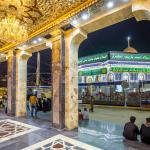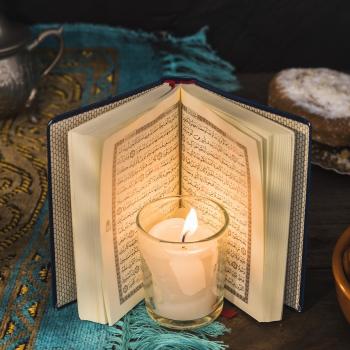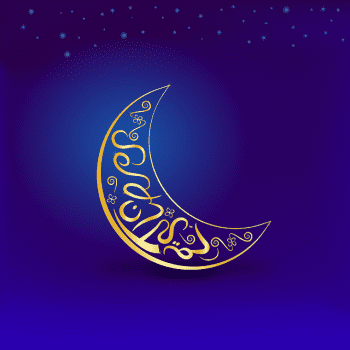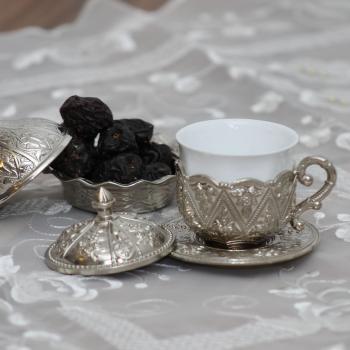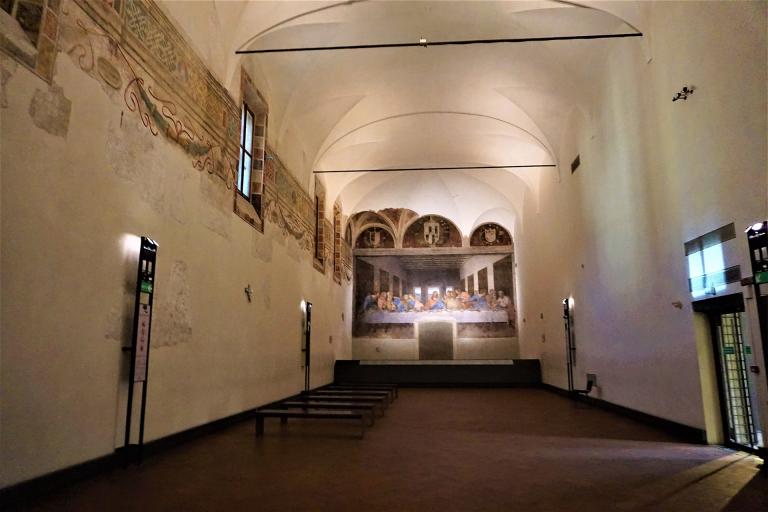
Chapter 5 of the Qur’an is named Al-Ma’idah, or ‘The Table Spread’ that descended from Heaven, containing heavenly food, as mentioned in verses 112-115 at the request of the disciples of Jesus. Is the heavenly food a reference to the last supper (and by reference, to the Christian Eucharist) or the Gospel’s account of the multiplication of loaves of bread and fish as told in Matthew 14, and Mark 6? ‘The Table Spread’ (Surah Al-Ma’idah) is considered to be the one of the last Surahs (chapters) of the Qur’an with many references to the People of the Book.
Lets go over the context a little bit, before the mention of the Table Spread first. Verse 110 makes reference to the many miracles of Jesus- all with the permission of God.
When Allah will say: O Jesus son of Mary! Remember My favor on you and on your mother, when I strengthened you with the holy Spirit, you spoke to the people in the cradle and in maturity, and when I taught you the Book and the wisdom and the Torah and the Gospel; and when you created out of clay the shape of a bird, by My permission, then you breathed into it and it became a bird, by My permission, and you healed the blind and the leprous, by My permission; and when you brought forth the dead, by My permission; and when I withheld the children of Israel from you when you came to them with clear arguments, but those who disbelieved among them said: This is nothing but clear sorcery.
Verse 111 then goes on to the disciples affirming submission to God.
And when I inspired the disciples to have faith in Me and My Messenger: they said, ‘We believe, and do bear witness that we are submitters”(Muslims).
This is when the disciples request Jesus to ask God for the table Spread in the verse 112 and 113.
When the disciples said: O Jesus, son of Mary! Is your Lord able to send down for us a table spread with food from heaven? He said: Reverence God, if you are true believers. They said: We desire that we should eat from it and that our hearts may be at peace, and that we may know that you have indeed spoken the truth to us and that we may be of among the witnesses to it.
Hearing this, Jesus goes on to pray to God for the table spread with heavenly food.
Jesus the son of Mary said: O Allah, our Lord! Send down for us a table spread with food from heaven, that it may be a feast (Eid) for us, for the first of us and for the last of us, and a sign from You. Give us sustenance, for You are the Best of Sustainers. The Qur’an 5:114
God then accepts Jesus’s prayer, but with a warning.
Allah said: Surely I will send it down to you, but whoever shall disbelieve afterwards from among you, surely I will chastise him with a chastisement with which I will not chastise, anyone among the nations. The Qur’an 5:115
Like the Qur’anic tradition, this conversation does not have a historic context. It does not say as to when this dialogue took place.
One commentator of the Qur’an asserts that this request followed a period of 30 days of fast and the feast (Eid) mentioned in verse 114 is in parallel with Eid al Fitr that follows the 30 days fasting during Ramadan for Muslims. However, this account is not parallel to the accounts in the Gospel.
Others draw references to the multiplication of the loaves of bread and fish that fed 5000 villagers, as told in Matthew 14:13-21(and Mark 6:32-44).
As soon as Jesus heard the news, he left in a boat to a remote area to be alone. But the crowds heard where he was headed and followed on foot from many towns. Jesus saw the huge crowd as he stepped from the boat, and he had compassion on them and healed their sick. That evening the disciples came to him and said, “This is a remote place, and it’s already getting late. Send the crowds away so they can go to the villages and buy food for themselves.” But Jesus said, “That isn’t necessary—you feed them.” “But we have only five loaves of bread and two fish!” they answered. “Bring them here,” he said. Then he told the people to sit down on the grass. Jesus took the five loaves and two fish, looked up toward heaven, and blessed them. Then, breaking the loaves into pieces, he gave the bread to the disciples, who distributed it to the people. They all ate as much as they wanted, and afterward, the disciples picked up twelve baskets of leftovers. About 5,000 men were fed that day, in addition to all the women and children!
This resonates well with the Qur’anic accounts (v 114) of Jesus asking to provide the heavenly food, sufficient for the first of us and for the last of us.
Others have drawn parallel to the last supper Jesus shared with his disciples during the Easter week leading to the crucifixion, and the heavenly food of the Eucharist that is derived from it. To be clear, the term “Last Supper” or “Eucharist” do not appear in the Gospel but are widely used Christian references to the last meal of Jesus and his disciples, mentioned in the three synoptic Gospels of Matthew, Mark (chapter14) and Luke (chapter 22).
As they were eating, Jesus took some bread and blessed it. Then he broke it in pieces and gave it to the disciples, saying, “Take this and eat it, for this is my body.” And he took a cup of wine and gave thanks to God for it. He gave it to them and said, “Each of you drink from it, for this is my blood, which confirms the covenant[d] between God and his people. It is poured out as a sacrifice to forgive the sins of many. Mark my words—I will not drink wine again until the day I drink it new with you in my Father’s Kingdom.” Matthew 26:26-29
The heavenly food is not specifically mentioned in the Gospel’s accounts of the last supper. But the Qur’anic account of Send down for us a table spread with food from heaven, that it may be a feast (Eid) for us may relate well with the Gospel’s account and the tradition among many Christian denominations of the Eucharist. The followers of Jesus observe this as a sacred feast during the Holy Communion. The Qur’an does not mention what type of food was descended, though fish and bread are often described by many commentators. None of them have included alcohol, which is forbidden in Islam.
Whether the accounts of the Table Spread and the disciples mentioned in chapter 5 in the Qur’an relate to the multiplication of the loaves of bread and fish, or the Last Supper and the Eucharist, or represent a stand-alone account of Jesus and his disciples’ request for the heavenly food, I remain very intrigued. To learn that the disciples of Isa, as Jesus is known in the Qur’an, asked him to request for heavenly food, and got it, is in itself a remarkable story. Not only that but the entire surah (chapter) is named after that is perhaps even more remarkable.


